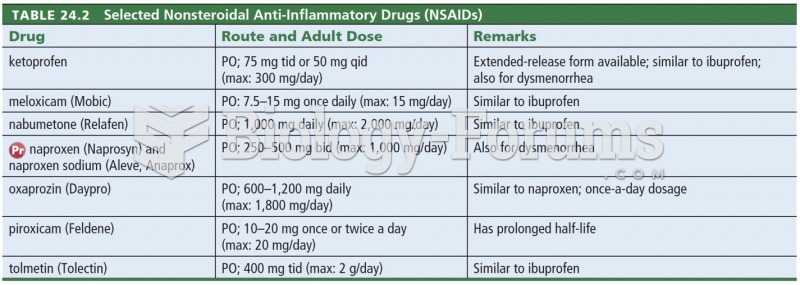|
|
|
Bacteria have flourished on the earth for over three billion years. They were the first life forms on the planet.
Never take aspirin without food because it is likely to irritate your stomach. Never give aspirin to children under age 12. Overdoses of aspirin have the potential to cause deafness.
Egg cells are about the size of a grain of sand. They are formed inside of a female's ovaries before she is even born.
Nearly all drugs pass into human breast milk. How often a drug is taken influences the amount of drug that will pass into the milk. Medications taken 30 to 60 minutes before breastfeeding are likely to be at peak blood levels when the baby is nursing.
As many as 28% of hospitalized patients requiring mechanical ventilators to help them breathe (for more than 48 hours) will develop ventilator-associated pneumonia. Current therapy involves intravenous antibiotics, but new antibiotics that can be inhaled (and more directly treat the infection) are being developed.
 This 11-month old girl demonstrates one of the abilites of a child of this age group - creating a to
This 11-month old girl demonstrates one of the abilites of a child of this age group - creating a to
 Sphygmomanometry. Photograph of a physician taking blood pressure readings with the use of a sphygmo
Sphygmomanometry. Photograph of a physician taking blood pressure readings with the use of a sphygmo





